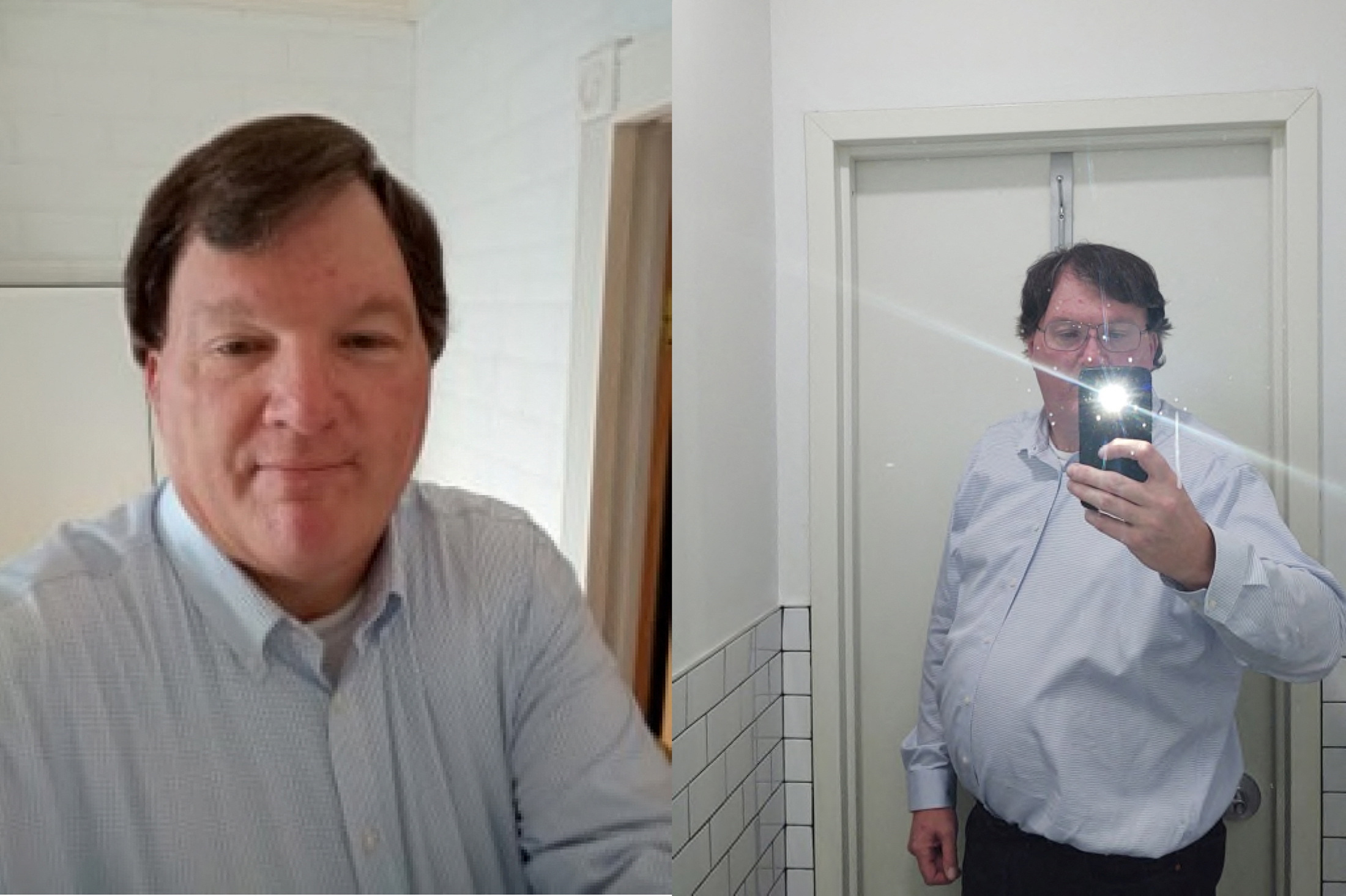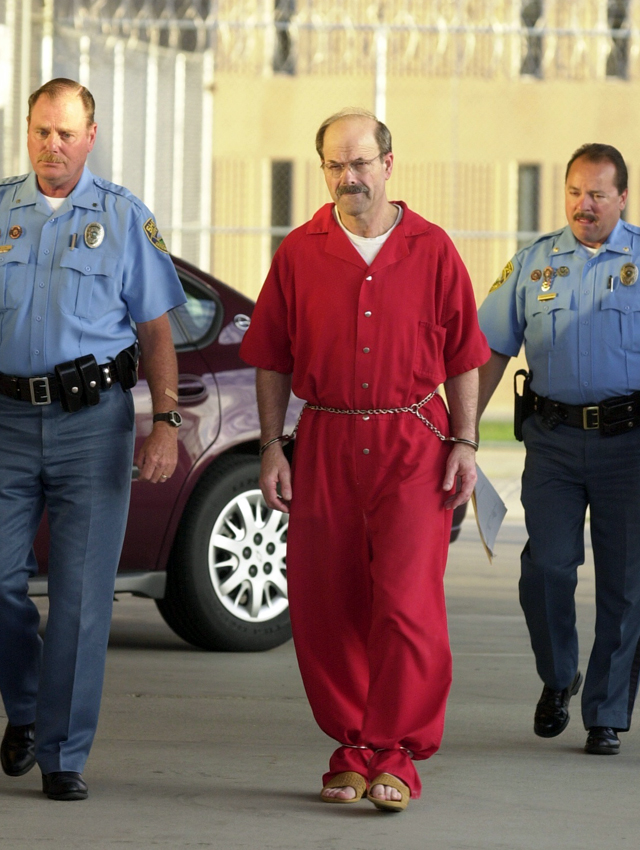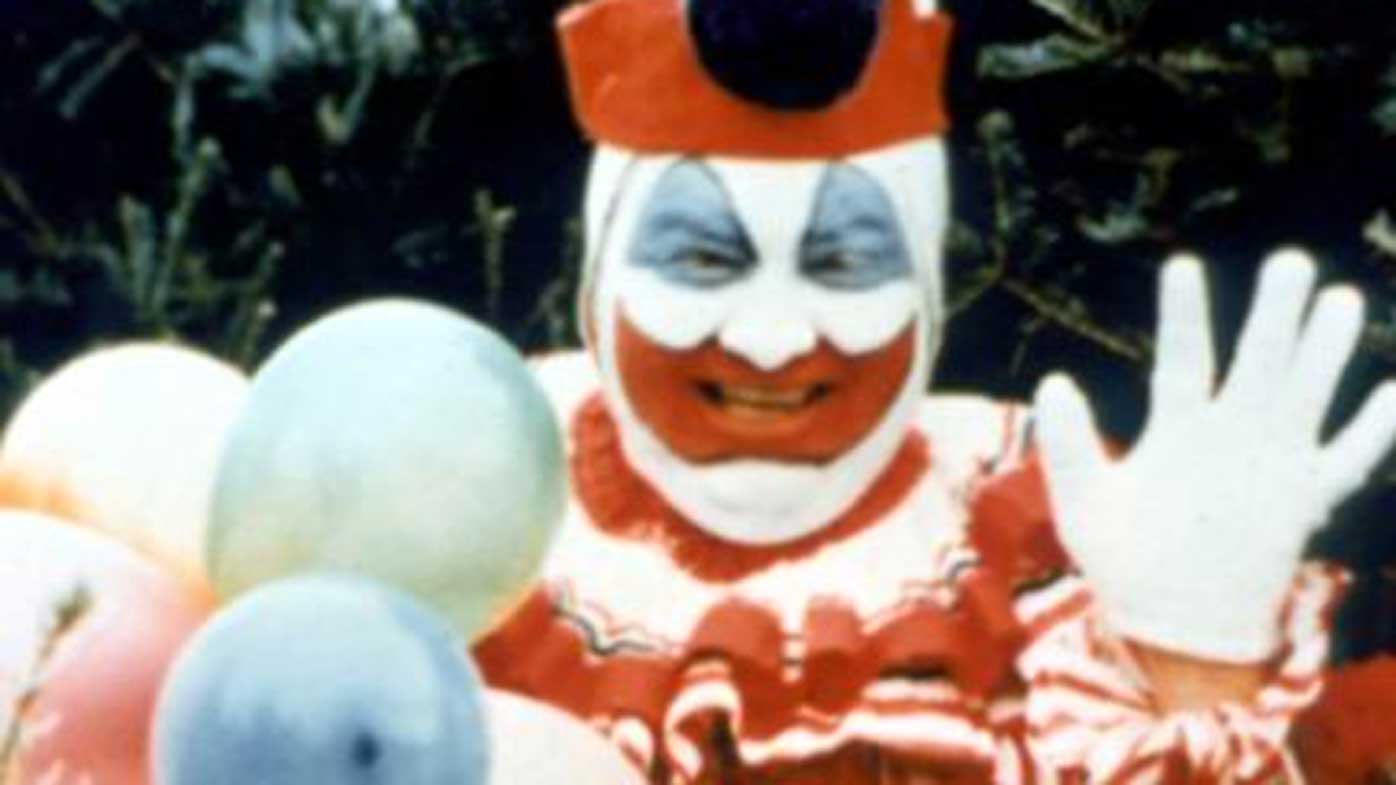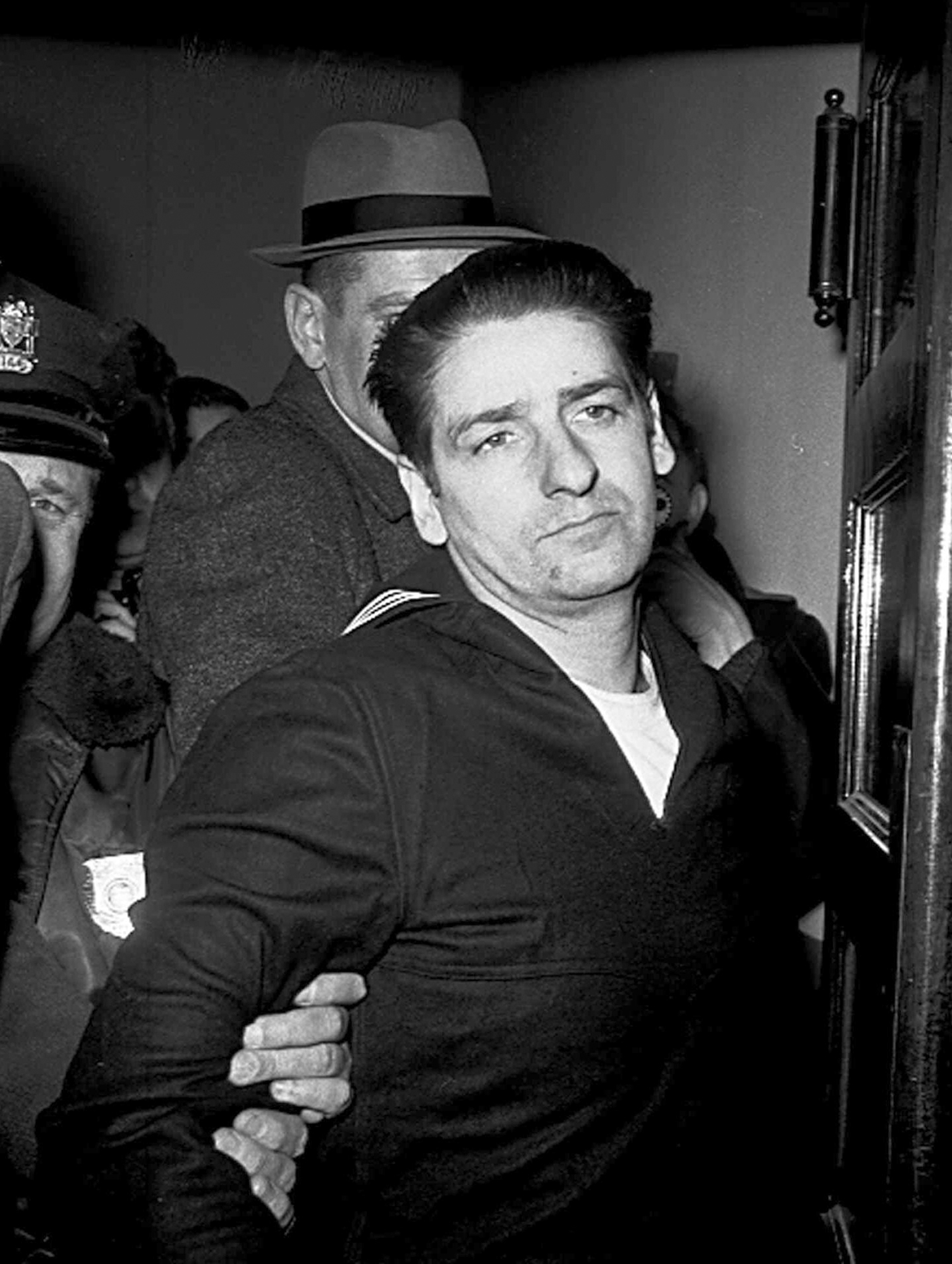For decades, criminologists and true crime documentaries have attempted to understand what causes serial killers to commit the atrocities they do.
Content warning: This article deals with content that some may find distressing.
Dennis Rader, John Wayne Gacy, Jeffrey Dahmer, Albert DeSalvo and Ted Bundy are just a few of more than 3600 serial killers documented in the United States as of 2020.
READ MORE: Spotify hikes fees for Aussie subscribers

Most recently, Rex Heuermann, a 59-year-old New York architect, was arrested and charged with murder in the killings of three of the "Gilgo Four," a group of four women whose remains were found along a short stretch of Long Island's Gilgo Beach in 2010.
Heuermann, who told his lawyer he's not the killer and pleaded not guilty, is also the prime suspect in the killing of the fourth woman but has yet to be charged in that case.
The unsolved killings confounded authorities on Long Island's South Shore after the search for one of the missing women led investigators to find at least 10 sets of human remains in addition to hers and launched the hunt for a possible serial killer.
As yet, police haven't linked Heuermann to the eight other human remains.
The Gilgo Beach serial killings have once again raised the question: How could someone do such a thing?
CNN spoke with three forensic psychologists and serial killer experts to better understand what causes people to become serial killers.
The conversations have been edited for length and clarity.
Are serial killers born this way or are they a product of their environment?
Dr. Scott Bonn, criminologist, author and public speaker: It's likely a combination of the two. Psychopaths are born that way, while sociopaths have been socialised into it. There's a spectrum, it's not black and white, and there are multiple factors.
Dr. Louis Schlesinger, professor of forensic psychology at John Jay College of Criminal Justice: It's unknown. But there's a very strong neurobiological component to serial sexual murder because the sexual instinct is biologically determined.
Dr. Katherine Ramsland, professor of forensic psychology and criminal justice at DeSales University: If you study one case, you can identify the influences, but you can't generalise from that one to all others. You might find some things in common across many cases, such as abuse or head injuries, but it won't be true of all serial killers.

How do you know a murderer is a serial killer?
Scott Bonn: The way that you know that there's a serial killer is because they leave consistent markings, consistent evidence that you're dealing with the same individual.
Louis Schlesinger: If you look at serial sexual murderers, they very often do things with the body above and beyond what is necessary to kill the person, like leaving the victim in a degrading position with their legs spread open with things shoved in or that type of thing. Why did they do that? And the answer is because killing alone is not psychosexually sufficient. So, they have to go above and beyond killing to gratify themselves.
What factors influence a person to become a serial killer?
Katherine Ramsland: There is a great deal of variation in this population, from a range of motives, backgrounds, ages and behaviours, to differences in physiology, sex, mental state and perceptions that influence reasoning and decisions. Each person uniquely processes a given situation in their lives, and some gravitate toward violence. This can be defensive violence or aggressive, psychotic or psychopathic, reactive or predatory, to name some possibilities.
Any factor – abuse, neglect, deviance, bullying – might have different influences on different people, and new experiences can modify perceptions positively or negatively.

Do all serial killers suffer some sort of trauma?
Scott Bonn: There can be a correlation between childhood trauma, but it's not enough to turn somebody into a serial killer. It's numerous factors that become a perfect storm that turn a person into a serial killer.
Louis Schlesinger: Most people want to search for a watershed event in somebody's life that will explain this behavior. "It's human nature, it's a natural tendency, he did it because his mother abused them. He did it because this traumatic event happened." But you're not going to find it. Poor parenting and childhood trauma, that never helps. But those, in and of themselves, are not dispositive for creating somebody who's going out and killing for sexual gratification in a series. Thousands of people have had horrible childhoods. They don't go around killing people in a series.

Are all serial killers psychopaths?
Scott Bonn: Not all psychopaths are serial killers, and not all serial killers are psychopaths. Being a psychopath alone does not make one a serial killer. Something else has to happen.
In the case (of a serial killer who) is a psychopath, their brain functions differently than a normal human brain. They process stimuli differently. In particular, the frontal lobe of the brain is where impulses are controlled. The thing that keeps you from just acting out on your initial knee jerk reaction and from just acting impulsively. Psychopaths have virtually no impulse control.
Many psychopaths function incredibly well and highly in society because they're very driven, motivated individuals, goal-oriented. They are described as very organised, very persuasive, very patient. These are characteristics that make a great architect or a great salesman, but they're also perfect attributes if you want to be a psychopathic killer.
Louis Schlesinger: The American people want their serial sexual murderers to be evil geniuses with IQs of 180 that speak five languages. Nothing could be further from the truth. The vast majority are unskilled, unemployed, menial work type people. Bundy is an outlier.
READ MORE: Team of investigators claim to have identified Zodiac killer

What is a serial sexual murderer?
Scott Bonn: The sexual urges, sexuality and arousal became intertwined and twisted with harming things and sadism and blood and an obsession with hurting and death. When that happens, it sets off a trajectory that leads one to become a sexual sadist. This doesn't happen overnight. No one wakes up one morning and says, "Today is a great day to become a serial killer." What happens is these impulses begin to take off in right around adolescence, perhaps even earlier, 11 or 12 years old.
It becomes like a fantasy loop that plays over and over in their minds throughout adolescence and into early adulthood. They frequently combine it with masturbation, so they fantasise about doing terrible things to people, bondage and raping and killing, and they become sexually aroused. This reaches ultimately what I like to call a tipping point, often in the early-to-mid 20s, where this fantasy can no longer just live in their daydreams. They have to act out on it, they must feel it. They absolutely have to live this experience. And then that's when they kill for the first time.
Louis Schlesinger: Many people, not serial killers, regular people, have sexual fantasies that they keep to themselves. The question then is, if there's a large number of people with very deviant sexual fantasies getting arousal, for example, from inflicting pain on others, torturing, why does a small number act out? We don't know. But what seems to happen is there's a trigger, a loss of some type, which begins the acting out. Loss of a job, loss of a relationship are the two things that tend to trigger it in men. And, incidentally, this is a male situation. There's no female serial sexual murderers.
Are all serial killers serial sexual murderers?
Louis Schlesinger: There's a world of difference between someone who's doing this for sexual gratification, like Ted Bundy, BTK, the Boston Strangler, Jack the Ripper – those are serial sexual murderers.
A serial killer generically means somebody who killed in a series. They could be contract killers, health care people like nurses that killed patients. You go into any state prison, you're going to find a number of people in their criminal career that may have killed two to three people.
Scott Bonn: Serial killers are not one size fits all. They fall into different categories, based upon the fantasy psychological need that is served by killing.
The public often misunderstands, and I think comes to an erroneous conclusion that it's all sex. Sometimes it's about power, domination and control. And just like the crime of rape, it may be a sexual activity, but it's really about domination, power and control.
Katherine Ramsland: What defines a serial killer is a specific behavior: having killed two or more victims in at least two incidents. We see behaviors common to certain subsets, but to lump all offenders who've committed two or more murders oversimplifies them.

Are there any signs that suggest someone might be a serial sexual murderer?
Louis Schlesinger: I have 10 ominous signs, when seen in combination, that indicate a risk for a potential sex murderer:
- Childhood abuse is number one that has very low predictive ability, but it's in the background of almost all serial sexual murders to one degree or another.
- Inappropriate maternal sexual conduct. Boys need to see their mothers as asexual. When an adolescent boy sees his mother behaving sexually, it's very, very destabilising.
- Pathological lying and manipulation.
- Sadistic fantasy with a compulsion to act.
- Animal cruelty, particularly toward cats, because cat is a female symbol.
- The need to control and dominate others is another one.
- Repetitive fire setting.
- Voyeurism, fetishes and sexual burglaries, sexually motivated burglary.
- Unprovoked attacks on females, associated with generalised misogynist emotions.
- Evidence of ritualistic or signature behaviour.
Do serial killers feel guilt or awareness that what they're doing is wrong?
Scott Bonn: Serial killers who may be psychopaths or sociopaths have antisocial personality disorders for which there is no cure. They know right from wrong, they just don't care. Society's laws and our morality mean nothing to them. That's why serial killers almost never are able to use the insanity defence when they go to trial, because they're not clinically or legally insane. They're just indifferent to the laws of society and indifferent to the suffering of others.
Louis Schlesinger: They know what they're doing is wrong. Do they feel remorse or guilt? I'm gonna say generally, no. When you cover up the crime scene, when you use burner phones to cover your tracks, that shows you have consciousness of guilt and an awareness of the wrongfulness of your behavior. So, when you go to court, there is no basis for a jury to find you legally insane. You can have all kinds of psychological disturbance. Now, these people are not normal, obviously. But they're not legally insane.
Keep in mind what I always say, this is not physics, there's no formula to apply to all these cases. For example, William Heirens, back in the 1940s, he was famous for writing on the bathroom walls of his victims: "Catch me before I kill more. I cannot help myself." He killed victims and then he put bandages on them. Did he try to undo it in his mind? In overwhelming cases, no, they don't feel guilt, but Heirens' behavior speaks to how this is more complicated than yes or no.
How can serial killers lead double lives so easily?
Scott Bonn: With most serial killers, the signs are going to be very subtle, because the problem is the Ted Bundys of the world, the John Wayne Gacys, the Dennis Raders blend into society so easily because they're chameleons. They have this ability to flip a switch and go from family man to sadistic killer with literally the flip of a switch. Because what they do is called psychological compartmentalisation.
Compartmentalisation is the ability to completely separate aspects of your life that seem contradicting. You know, Dennis Rader (known as the BTK killer) was a member of the Lutheran Church, president of the church council, Boy Scout leader, successful father and respected man about town who also happened to be one of the most sadistic, horrible serial killers of the 20th century.
So how can those two things coexist? It's through this process of compartmentalisation, where they are able to completely separate it. So there's no contradiction, he suffers no ambiguity, no cognitive dissonance as a result. To him it's just two completely different things.
What do you make of Rex Heuermann, the Gilgo Beach killings suspect?
Katherine Ramsland: He's not convicted, so we can't say at this time that he's a serial killer. Just because the victims are sex workers doesn't mean the motivation was sexual. In the legal papers, there's a suggestion that one incident was about revenge for being scammed. If the murders sexually excited him and that's why he did it, then it's serial sexual homicide.
Scott Bonn: As soon as I heard that (the killer) was carefully disposing of bodies in a very isolated, desolate area on Long Island, it's difficult to get to, and he was meticulously dismembering the bodies and wrapping them up in burlap sacks, tying them up tightly and neatly and depositing them out there, I knew based upon past cases that this was going to be a very organised, meticulous, unemotional individual who was a planner, sophisticated, probably professional, probably very articulate and persuasive, and lived in that vicinity, because he had to know it intimately.
Sign up here to receive our daily newsletters and breaking news alerts, sent straight to your inbox.
